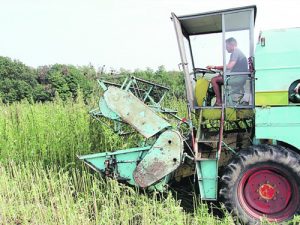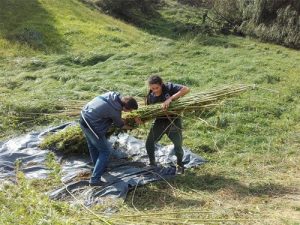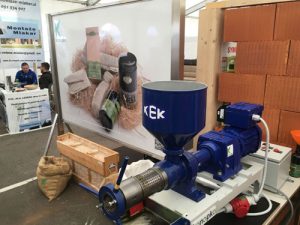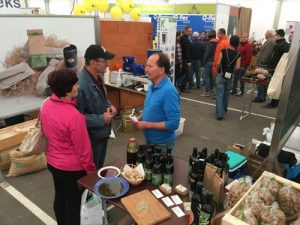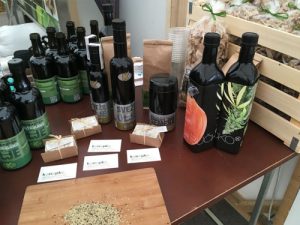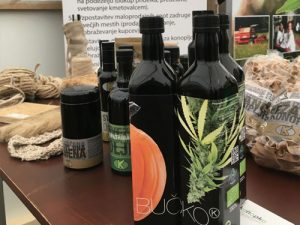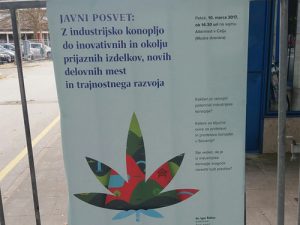In Slovenia, co-operatives have a long tradition, with first cooperatives established at the end of the 19th century. In the second half of the 20th century the co-operative movement stagnated when Slovenia was part of Yugoslavia and started to grow again after independence in 1991. In addition to existing cooperatives, primarily agricultural producers within a specific commodity, new cooperatives have started to emerge. One such cooperative is Konopko Cooperative, which unites farmers and entrepreneurs in the production and sale of industrial hemp. This co-operative is a strong advocate of sustainable agriculture and social entrepreneurship.
Basic information
Area: cca 500 ha
Cooperatve Konopko is a co-operative with a national footprint as members operate farms in every region of Slove- nia. The farms differ in size, relief, climate and structure.
Industrial hemp is a non-demanding plant for growing conditions, which does not require intensive agro-technical measures and is therefore suitable for growing on smaller parcels of land. It can be easily grown organically. There- fore, it is very suitable for cultivation under Slovenian conditions. By cultivating industrial hemp, growers can achieve higher yield per hectare in comparison to conventional crops such as corn, potatoes or sugar beet. The advantage of industrial hemp is also its versatility. Therefore, most growers can process industrial hemp into various products such as food supplements, cosmetic products, textiles, foodstuffs, fodder and products for construction.
Cooperation Process Data
The cooperative connects growers and processors of industrial hemp, innovators, researchers and other stake- holders interested in industrial hemp cultivation. With the growth of membership, the cooperative is facing new challenges. It is necessary to coordinate and integrate interests, set priorities, share the workload, and cooperate with an increasing number of institutions. The cooperative is financed mostly through its membership. In 2017, the cooperative was successful in a public tender for the acquisition of funds for the operation of social enterprises.
The cultivation and processing of industrial hemp is a highly regulated activity by the state, so the cooperative pro- vides its members with assistance in starting up activities and in the interpretation of regulations. It also advocates the amendment of relevant legislation on behalf of its members.
There is constant challenge to improve advice and assistance; education and training; and marketing strategies to its membership. Other supports provided to members include: equipment sharing, efficient marketing, support of cooperative trademark, and market interventions – guaranteed purchase price of seeds and sale price of hemp.
The social benefits of the cooperative is also a challenge: generating new jobs, promoting local economy, increasing self-sufficiency in Slovenia, regenerating arable land, introducing sustainable economy, taking care of vulnerable social groups are important issues for cooperative and their members.
An important role of the cooperative is building awareness among customers about the importance of cultivation and processing of industrial hemp.
Each new member receives information about cooperatives. Key topics include: the foundations of cooperatives, the principles of cooperative society, the founding of a cooperative, legislation, democratic co-management, importance of local resources, the formation of a group, the formation of a product, the establishment of a business model, best practices.
This education course is financed through projects provided by the state for the development of cooperatives and social entrepreneurship. The funds are provided only for the duration of the project and do not provide permanent and continuous support for this purpose. The existing Agricultural Advisory Service does not actively engage with these courses. It is a challenge on how to provide constant funding for these courses.
Advice/Recommendation
“The value of sustainable development, democratic co-governance, solidarity and cooperation are important for the functioning of the cooperative.
Cooperation with experts and professional institutions is important.”
Queries/Questions
- Should a dedicated Advisory Service carry out training on the role and functions of the co-operative movement?
- What are the key training requirements for a member of a co-operative?



 Čeština
Čeština  English
English  Français
Français  Deutsch
Deutsch  Italiano
Italiano  Slovenščina
Slovenščina  Español
Español 